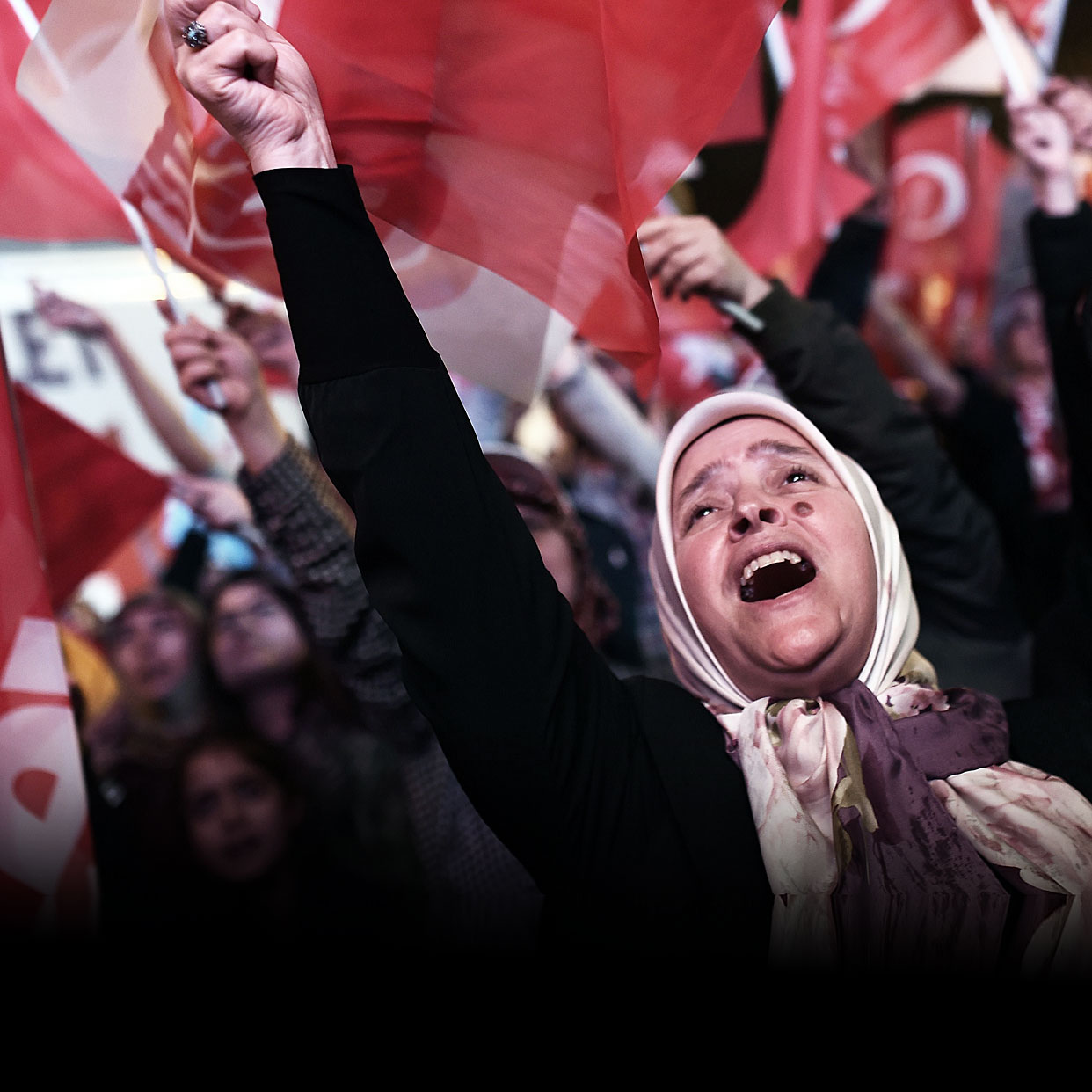International election observers condemn Turkey referendum
Claims of voting irregularities as President Recep Tayyip Erdogan is granted sweeping new powers and a longer term of office

A free daily email with the biggest news stories of the day – and the best features from TheWeek.com
You are now subscribed
Your newsletter sign-up was successful
International observers have condemned the outcome of Turkey's referendum, while opposition groups are calling for the result to be cancelled.
State-run media agency Anadolu reported last night that the Yes campaign had won 51.41 per cent of the vote on a turnout exceeding 80 per cent.
The vote gives President Recep Tayyip Erdogan sweeping new powers, including the ability to appoint ministers and judges. It will also allow him to remain in office until 2029 and reintroduces the death penalty.
The Week
Escape your echo chamber. Get the facts behind the news, plus analysis from multiple perspectives.

Sign up for The Week's Free Newsletters
From our morning news briefing to a weekly Good News Newsletter, get the best of The Week delivered directly to your inbox.
From our morning news briefing to a weekly Good News Newsletter, get the best of The Week delivered directly to your inbox.
However, Turkey's main opposition party CHP said the result should be annulled, alleging voter fraud.
Speaking a few hours after the polls closed, Bulent Tezcan, deputy chairman of the CHP, complained that last-minute changes meant ballots did not have to be officially stamped to be accepted, leaving them open to tampering.
Several international election monitors have also criticised the referendum.
Cezar Florin Preda, head of a delegation from the Council of Europe, said it "did not live up to ... standards" because of an inadequate legal framework, a "skewed pre-vote campaign" in favour of Yes and intimidation of the opposition.
A free daily email with the biggest news stories of the day – and the best features from TheWeek.com
The Organization for Security and Co-operation in Europe voiced similar concerns, saying the vote "took place on an unlevel playing field and the two sides of the campaign did not have equal opportunities".
Critics had suffered restrictions and state resources had been misused to unfairly push for a yes vote, it said.
This is "a damning verdict", says the BBC's Mark Lowen, and "is sure to embolden the opposition in its attempts to challenge the results".
Turkey's opposition plan to challenge the legality of the referendum at the European Court of Human Rights.
But at home, Erdogan's opponents face an uphill struggle because the state machinery is so heavily controlled by the president.
Erdogan rejected criticism, warning foreign election observers to "know their place".
"There are those who are belittling the result. They shouldn't try, it will be in vain. It's too late now," he said.
German Chancellor Angela Merkel told Erdogan he should have a "respectful dialogue" with the other parties following the narrow result, a tone was echoed by outgoing French President Francois Hollande.
As foreign leaders take an increasingly hard line in the face of mounting evidence of election fraud, and government supporters consolidate on their win, the chasm between Turkey and the west will continue to widen, says the BBC.
-
 Film reviews: ‘Wuthering Heights,’ ‘Good Luck, Have Fun, Don’t Die,’ and ‘Sirat’
Film reviews: ‘Wuthering Heights,’ ‘Good Luck, Have Fun, Don’t Die,’ and ‘Sirat’Feature An inconvenient love torments a would-be couple, a gonzo time traveler seeks to save humanity from AI, and a father’s desperate search goes deeply sideways
-
 Political cartoons for February 16
Political cartoons for February 16Cartoons Monday’s political cartoons include President's Day, a valentine from the Epstein files, and more
-
 Regent Hong Kong: a tranquil haven with a prime waterfront spot
Regent Hong Kong: a tranquil haven with a prime waterfront spotThe Week Recommends The trendy hotel recently underwent an extensive two-year revamp
-
 Epstein files topple law CEO, roil UK government
Epstein files topple law CEO, roil UK governmentSpeed Read Peter Mandelson, Britain’s former ambassador to the US, is caught up in the scandal
-
 Iran and US prepare to meet after skirmishes
Iran and US prepare to meet after skirmishesSpeed Read The incident comes amid heightened tensions in the Middle East
-
 Israel retrieves final hostage’s body from Gaza
Israel retrieves final hostage’s body from GazaSpeed Read The 24-year-old police officer was killed during the initial Hamas attack
-
 China’s Xi targets top general in growing purge
China’s Xi targets top general in growing purgeSpeed Read Zhang Youxia is being investigated over ‘grave violations’ of the law
-
 Panama and Canada are negotiating over a crucial copper mine
Panama and Canada are negotiating over a crucial copper mineIn the Spotlight Panama is set to make a final decision on the mine this summer
-
 Why Greenland’s natural resources are nearly impossible to mine
Why Greenland’s natural resources are nearly impossible to mineThe Explainer The country’s natural landscape makes the task extremely difficult
-
 Iran cuts internet as protests escalate
Iran cuts internet as protests escalateSpeed Reada Government buildings across the country have been set on fire
-
 US nabs ‘shadow’ tanker claimed by Russia
US nabs ‘shadow’ tanker claimed by RussiaSpeed Read The ship was one of two vessels seized by the US military